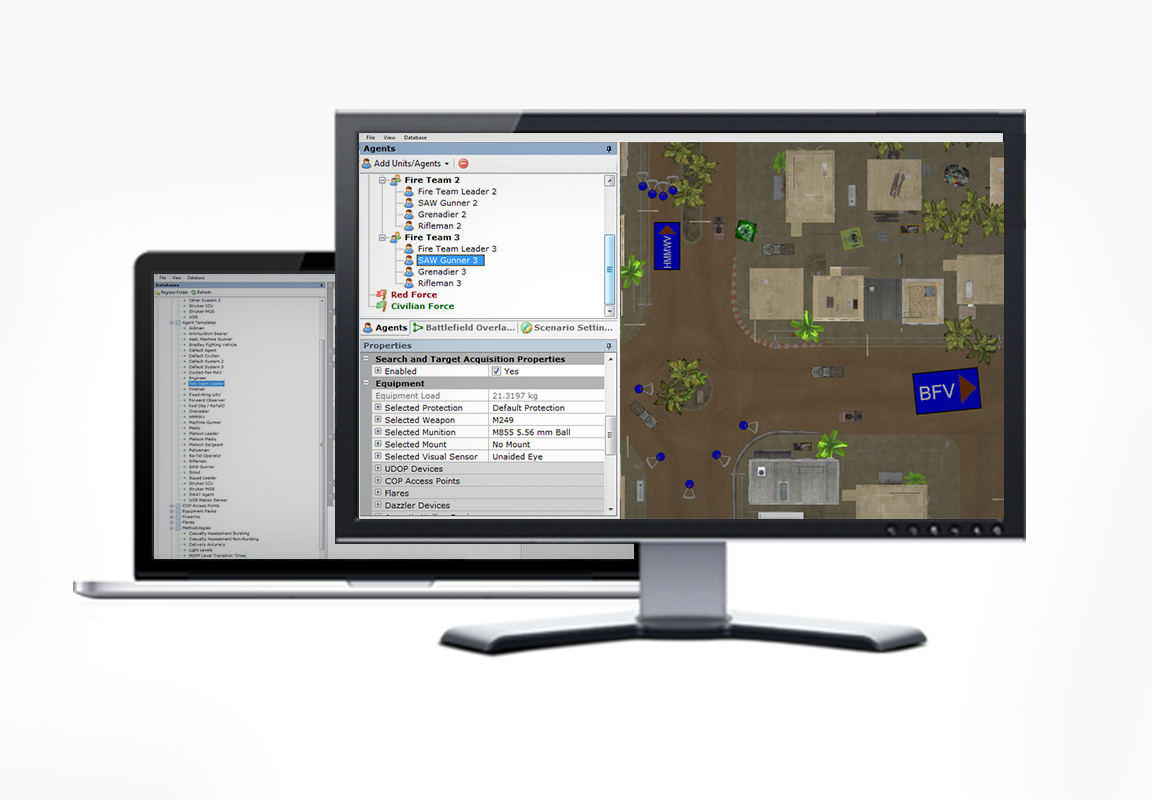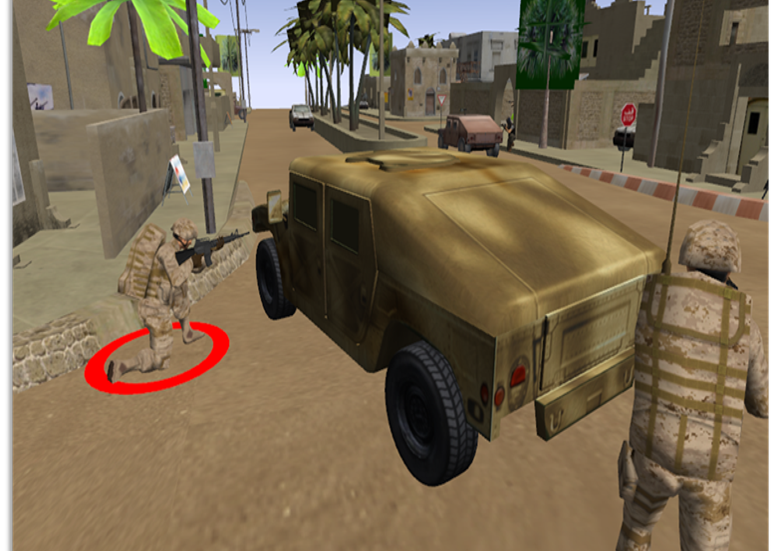
Caliber is a flexible combat modeling and simulation solution focused on the Marine Expeditionary Rifle Squad (MERS). Caliber provides an intuitive user interface that allows non-programmer users, analysts, and subject matter experts (SMEs) to rapidly build complex combat scenarios and missions in a variety of operational environments. Advanced analysis tools enable users to design simulation experiments and to evaluate the impact that materiel, environment, oppositional forces, and missions have on small combat unit performance. Evaluation criteria include survivability, lethality, sustainability, mobility, command and control, communications, and situational awareness. Caliber’s simulation architecture integrates with other simulations using the High-Level Architecture (HLA), enabling the creation of powerful federated simulations.

Capabilities
- An intuitive user interface (UI) enables users to visualize and build complex combat scenarios and incorporate SME combat knowledge
- Powerful and advanced mission-building features, supporting dynamic behavior for Course of Action (COA) analyses, allow customization of squad and combat agent mission behavior, tasks, and interactions
- High fidelity combat agent tools enable users to customize squads including equipment and roles including medics, scouts, and engineers
- Advanced simulation configuration capabilities support the creation of materiel, and notional agents such as police officers and firefighters
- Task degradation model based on the Taxon-Task-Taxon (T3) methodology
- Representation of vehicles providing combat agent interaction with mobile platforms such as the mounting, driving, and dismounting of vehicles
- User option to change environmental parameters during scenario runtime
- Representation of Marine-system interactions with systems and devices such as Unmanned Aerial Vehicles (UAVs)
Simulation Tools
- Import various terrains; edit and attribute features
- Modify, add, delete, import/export data for agent types, equipment, units/formations, and methodologies
Analysis Tools
- Organize studies by scenario test cases, analysis, and output, and conduct simulation runs for statistical validity
- Perform comparative analyses through automated manipulation of critical factor(s) in a baseline scenario
- Analyze output data collected during simulation runs which can be saved, filtered, and exported

